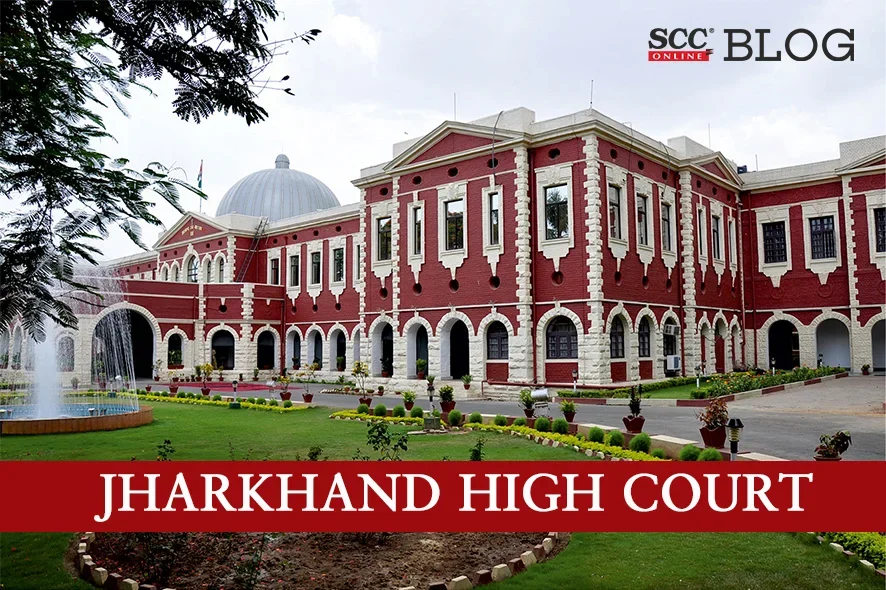Jharkhand High Court: In a challenge against order passed by Customs, Excise and Service Tax Appellate Tribunal, Kolkata on 9-08-2019, the Division Bench of Rongon Mukhopadhyay and Deepak Roshan*, JJ. held that the said appeals were exclusively maintainable by the Supreme Court of India as per Section 35-L of the Central Excise Act, 1944 (‘1944 Act’).
The appellant raised objection against maintainability of the two instant appeals under Section 35-G of the 1944 Act for determination of value of excisable goods for assessment falling within the exclusive jurisdiction of Supreme Court under Section 35-L of Central Excise Act, 1944.
The Court perused the issues framed by Revenue to decide the issue involved herein, saying that “the nature of order of assessment shall be decisive as to whether the question of rate of duty or value of the goods are involved or not and not the scope of appeal or questions raised in appeal.”
The Court analysed Section 35-L of Central Excise Act, 1944 and expressed that sub-section 2 regarding determination of question related to rate of duty includes determination of taxability or excisability of goods for the purpose of assessment. It further stated the provision under Section 35-G of 1944 Act and expressed that “The words “amongst other things” under Section 35G and Section 35L manifest the legislative intent that the order for the purpose of assessment if includes question of determination of rate duty or value of excisable goods intermingled with any other question, the appeal would lie to Supreme Court. The word “for the purpose of assessment” refers to the assessment orders (Adjudication Order). If in a case in the assessment order one of the question relates to rate of duty or valuation, the appeal would lie before the Supreme Court.”
The Court referred to CST v. Ernst and Young P. Ltd., (2014) 27 GSTR 22 and CST v. Scott Wilson Kirkpatrick (India) P. Ltd., (2011) 10 GSTR 43 for interpretation of the word ‘for the purpose of assessment’ under Section 35G or 35L wherein, it was held the Order-in-Original (adjudication) to be the basis for determination on whether an appeal would lie before High Court or Supreme Court. Further, in Pr. Commissioner v. Raja Dying, 2017 (5) GSTL 231 (P&H), Punjab and Haryana High Court held Tribunal to be the basis for deciding whether appeal should lie to High Court or the Supreme Court, since adjudication order merges with order of Tribunal. The Court also highlighted the Circular dated 22-09-2011 issued by Central Board of Indirect Taxes and Customs (formerly Central Board of Excise & Customs) instructing the department for filing the appeal before Supreme Court in cases related to rate of duty or value of goods for the purpose of assessment as prescribed statutorily.
Pointing towards the show cause notice dated 24-09-2012, the Court commented that “it would transpire that one of the issues relate to valuation of excisable goods.” It further noted that the Order dated 11-05-2015 in the instant appeal, Commissioner of Central Excise found under-valuation of excisable goods and the issue of valuation was also before CESTAT as pointed towards the impugned order.
At this point, the Court highlighted that Sections 35-G and 35-L of 1944 Act also apply to Service Tax by virtue of Section 83 of Finance Act, 1994. Also, Sections 130 and 130-E of Customs Act, 1962 dealing with appeal to High Court and Supreme Court retrospectively, being pari materia to Sections 35G and 35L of 1944 Act. Hence, the Court concluded that the ratio of decisions by different Courts under the Customs Act, 1962 would also apply to the 1944 Act.
The Court referred to Union of India v. Guwahati Carbon Ltd., (2012) 11 SCC 651 wherein, it was held that against the Tribunal’s decision regarding accessible value excluding freight, transportation and insurance charges, appeal shall lie before the Supreme Court. Further citing the cases of EY Pvt. Ltd. (supra) and Scott Wilson (supra). In Pr. Commissioner v. Raja Dying, the Punjab and Haryana High Court held that the nature of Tribunal’s order, and not the scope of appeal determines the maintainability of appeal under Section 35G of 1944 Act.
After reference to all the material, the Court highlighted that “one of the issues involved relates to determination of valuation of excisable goods and/or rate of duty of excisable goods, amongst other things, for the purpose of assessment.” Therefore, the Court held that the instant appeals were not maintainable and would lie before the Supreme Court under Section 35L, stating that the High Court’s jurisdiction in such matters was specifically excluded vide Section 35G and falls within the exclusive jurisdiction of Supreme Court under Section 35L of 1944 Act. Thus, the appeals were dismissed.
[Principal Commissioner of Central G.S.T. & Central Excise v. Bihar Foundary and Casting Ltd., 2023 SCC OnLine Jhar 3371, decided on 11-12-2023]
Judgment by: Justice Deepak Roshan
Advocates who appeared in this case :
For Appellant: Advocate Amit Kumar
For Respondents: Advocate K. Kurmy, Advocate Nitin Kr. Pasari, Advocate Sidhi Jalan






